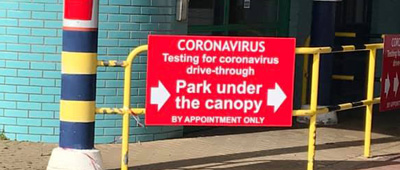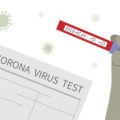As the number of coronavirus cases continue to increase worldwide, health care facilities and their staffs have to effectively prioritize their time, testing and treatment regarding the infectious disease. Although most people want to be tested for COVID-19, not everyone qualifies.
Who to test
If you are a close contact of someone with COVID-19 or you are a resident in a community where there is ongoing spread of COVID-19 and develop symptoms of COVID-19, call your healthcare provider and tell them about your symptoms and your exposure. They will decide whether you need to be tested, but keep in mind that there is no treatment for COVID-19 and people who are mildly ill may be able to isolate and care for themselves at home. As a principle most laboratory will accept specimens for COVID-19 testing from individuals meeting criteria for testing as outlined by the Ministry of Health. Public health authorities are not currently recommending routine testing of asymptomatic persons for COVID-19.
The ingredients for testing for Covid-19 are generic, but an element of the test known as the primer – or hook – that’s used to match the genetic material with the virus that causes Covid-19 is unique. Blood tests are also being carried out, that can detect if a person has previously been exposed to the virus. These tests are useful for knowing if a person may have developed immunity.
How long before people get results?
From the point that a person is tested, a sample has to be transported to a laboratory and put through the test. The results then need to be communicated to the medical professionals and back to the patient themselves. At the moment, it is taking most laboratory up to 48 hours from the time of collection to patients learning the result. Generally patients are being told to expect a test result between 48 and 72 hours.
Does it matter how quickly Covid-19 tests are completed?
According to Dr Gaetan Burgio, of Australian National University’s John Curtin School of Medical Research, how quickly a test is returned, “depends on the technology (the robotics), the reagents available, the number of technicians and the protocol to perform the test. Some are better equipped than others, hence a difference in the delivery.”But he says “speed is very important” in a pandemic. “The patients are, in principle, isolated awaiting the results but these [patients] might not comply. Delivering results quickly enables us to rapidly detect the positives and follow up those patients in isolation or quarantine.
“Rapid detection reduces the number of patients that are unnecessarily followed up. In a context of a pandemic with thousands of patients to test within a day, this is crucial.”
Will there be any different, faster Covid-19 tests?
Rapid tests for other viruses already exist that have a turnaround time of 30 minutes and that it was likely faster tests would be available in Australia in the future. According to experts a new rapid test with a 15-minute turnaround could take the strain off pathology services across the country. But experts also warned these tests would likely be less accurate than lab-based PCR tests because they looked for antibodies, rather than the virus itself. This could return a false-negative, one virologist said, if the test was taken at the wrong stage of a person’s illness. SEE:SIRS Criteria VS Sepsis-3 SOFA
To help contain the spread of COVID-19 and other diseases spread through respiratory droplets, including the flu, health officials have issued the following recommendations:
- Wash your hands regularly with soap and water for at least 20 seconds or use an alcohol-based hand sanitizer.
- Refrain from touching your eyes, nose and mouth.
- Don’t make close contact with sick individuals.
- If you are sick, stay home.
- Cover coughs or sneezes with a tissue and throw the tissue away.
- Clean and disinfect objects that are frequently touched.
- If someone in your family tested postive for COVID-19, keep that entire household at home.
- Recommendations to cancel or postpone mass gatherings of 10 or more people
Equity Vs Equality: Understanding The Difference







1 Comment